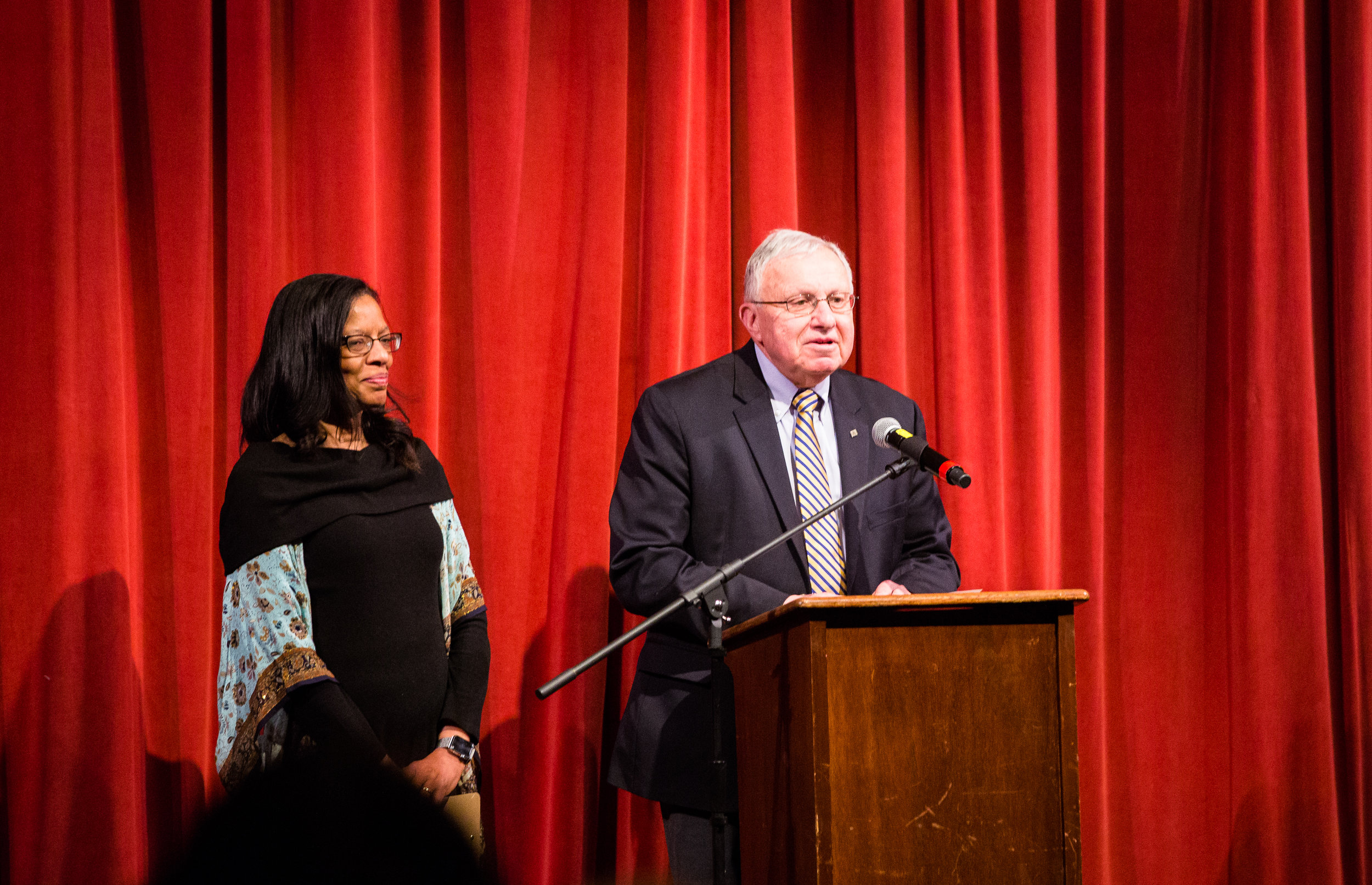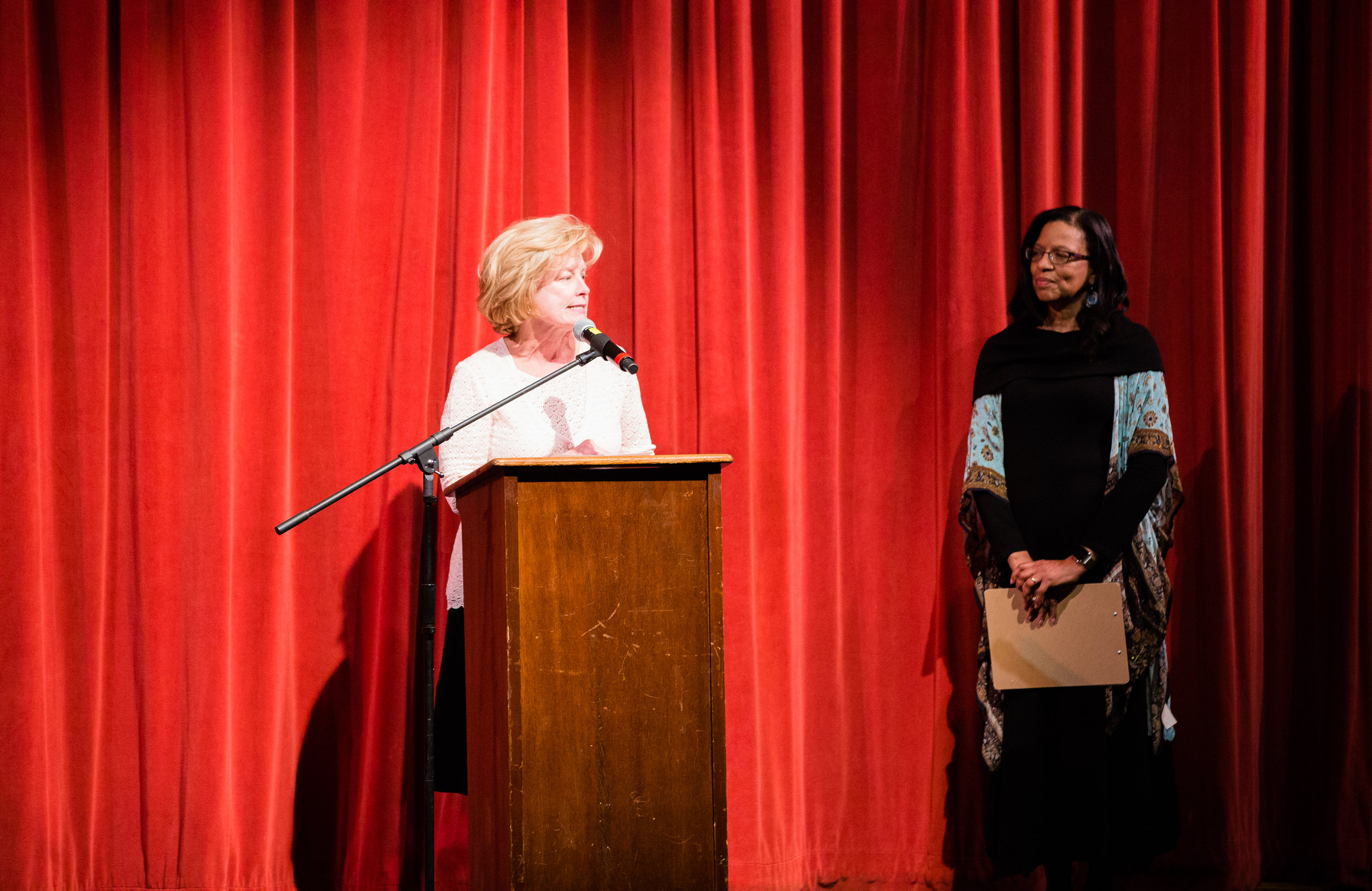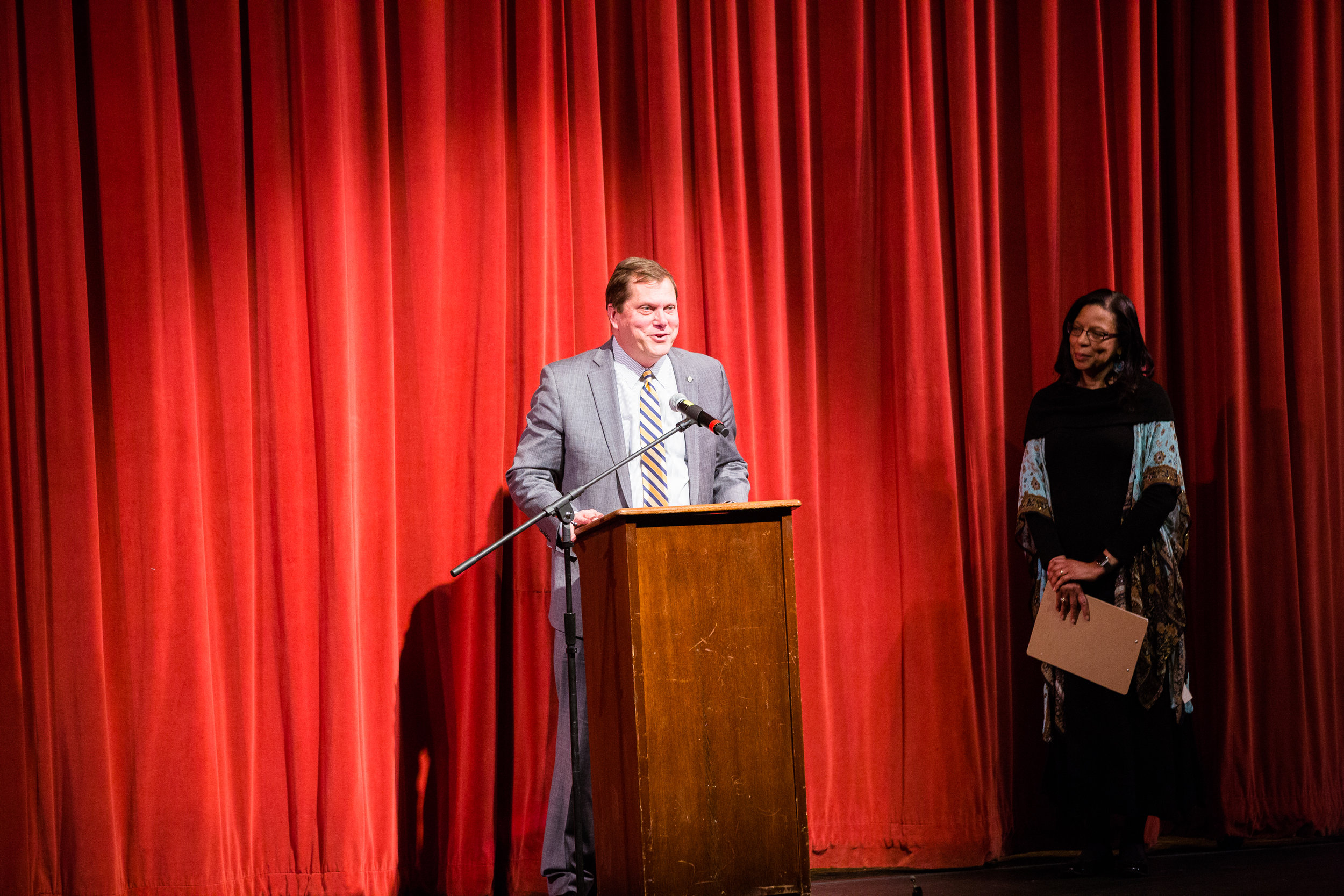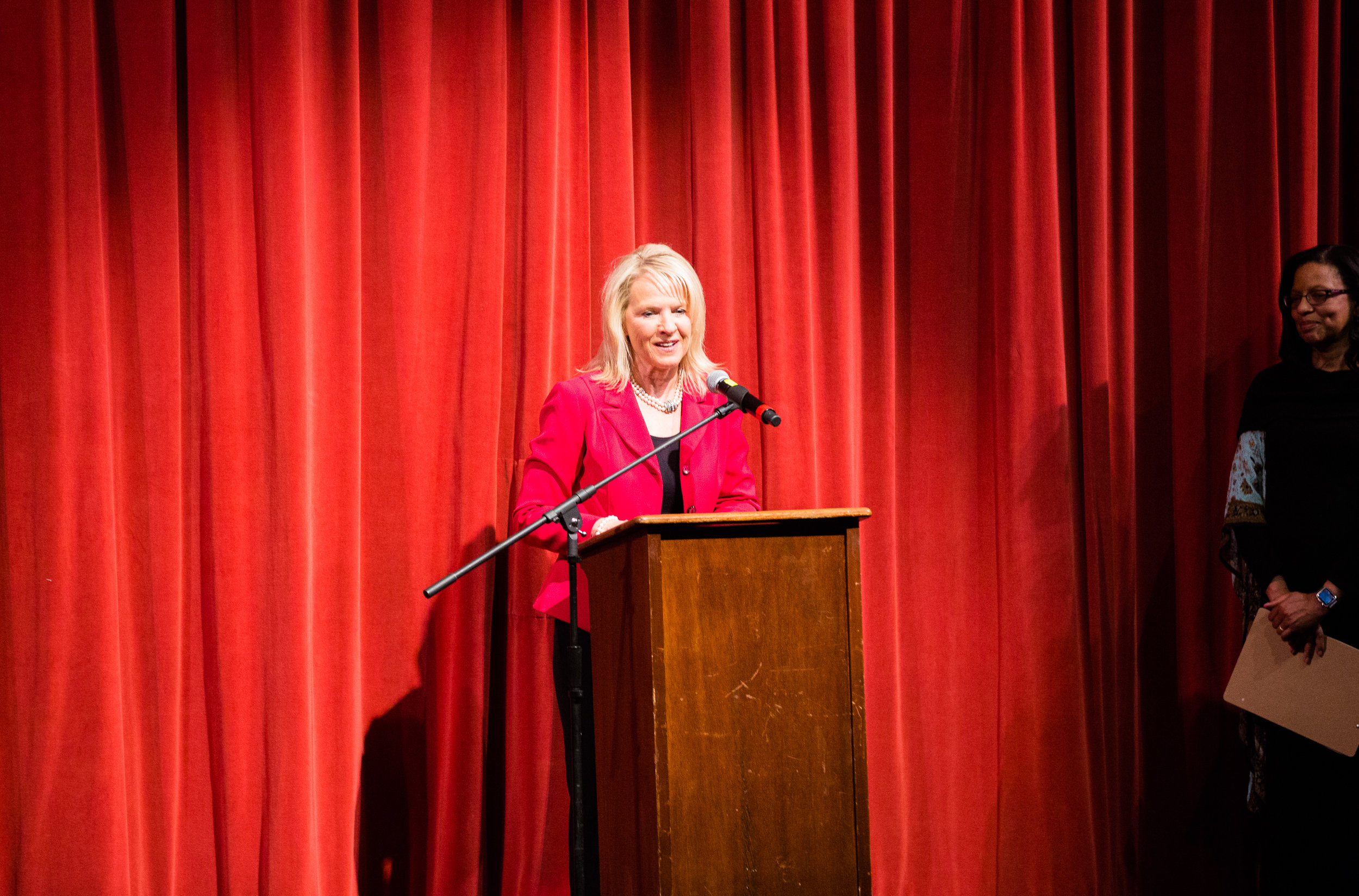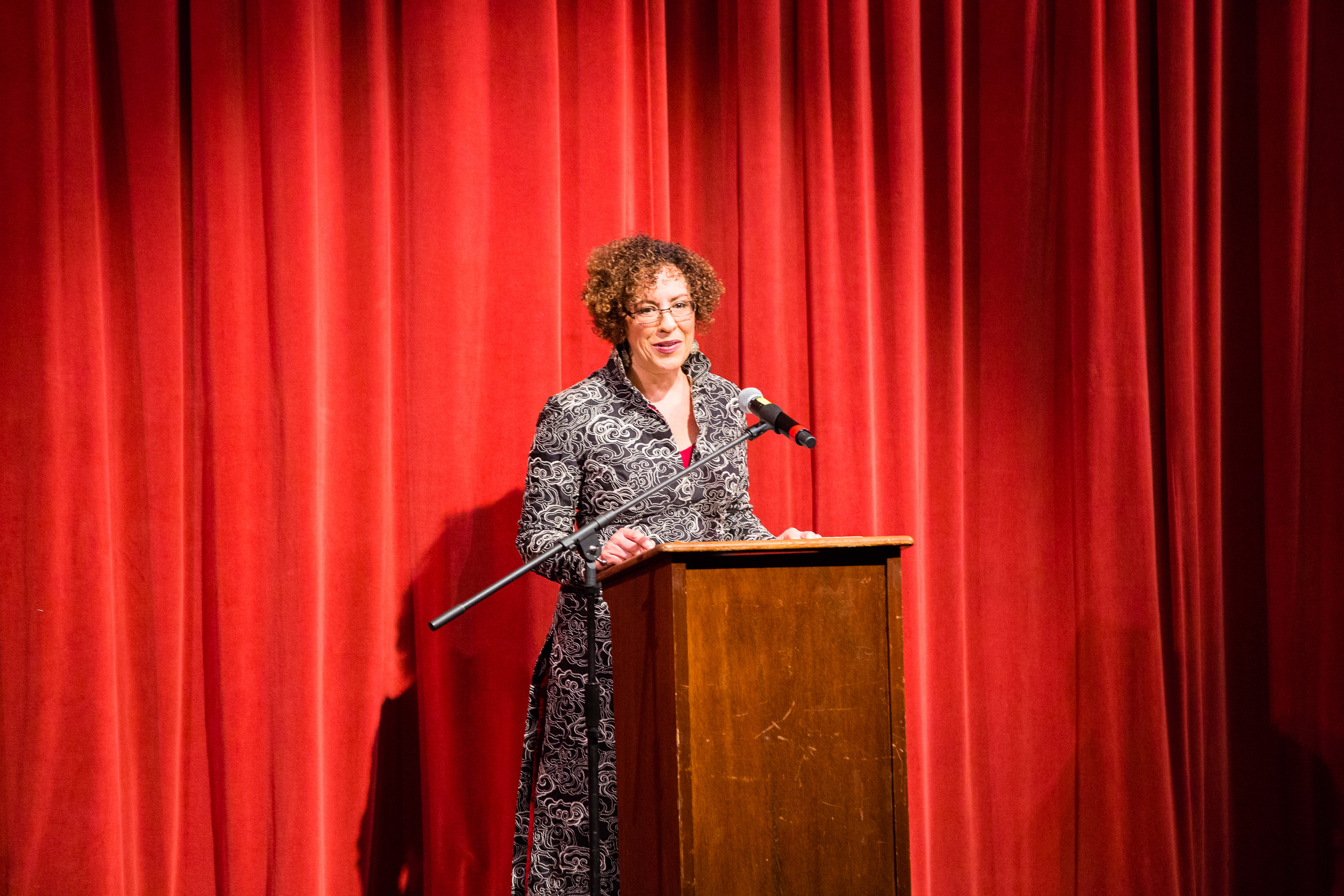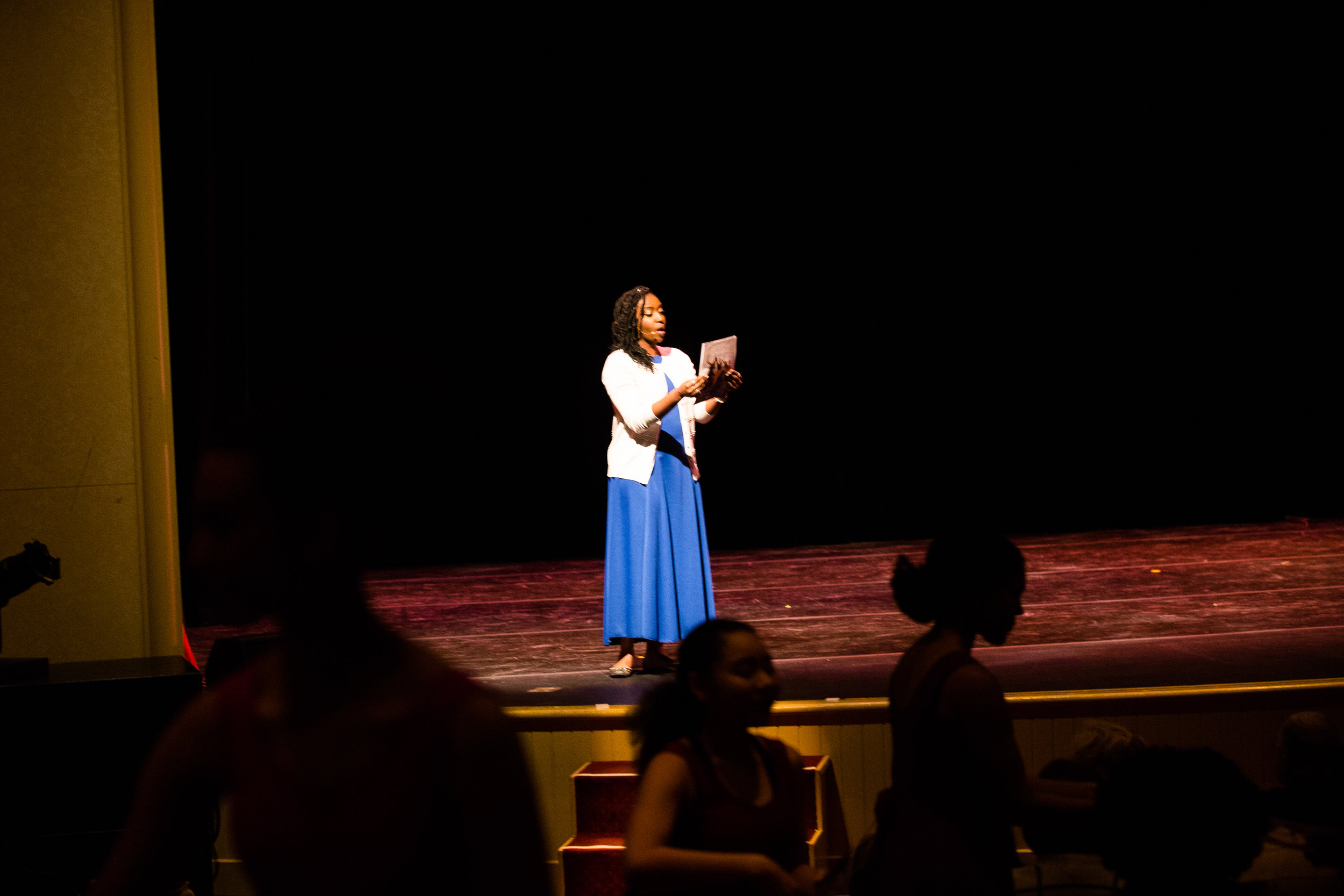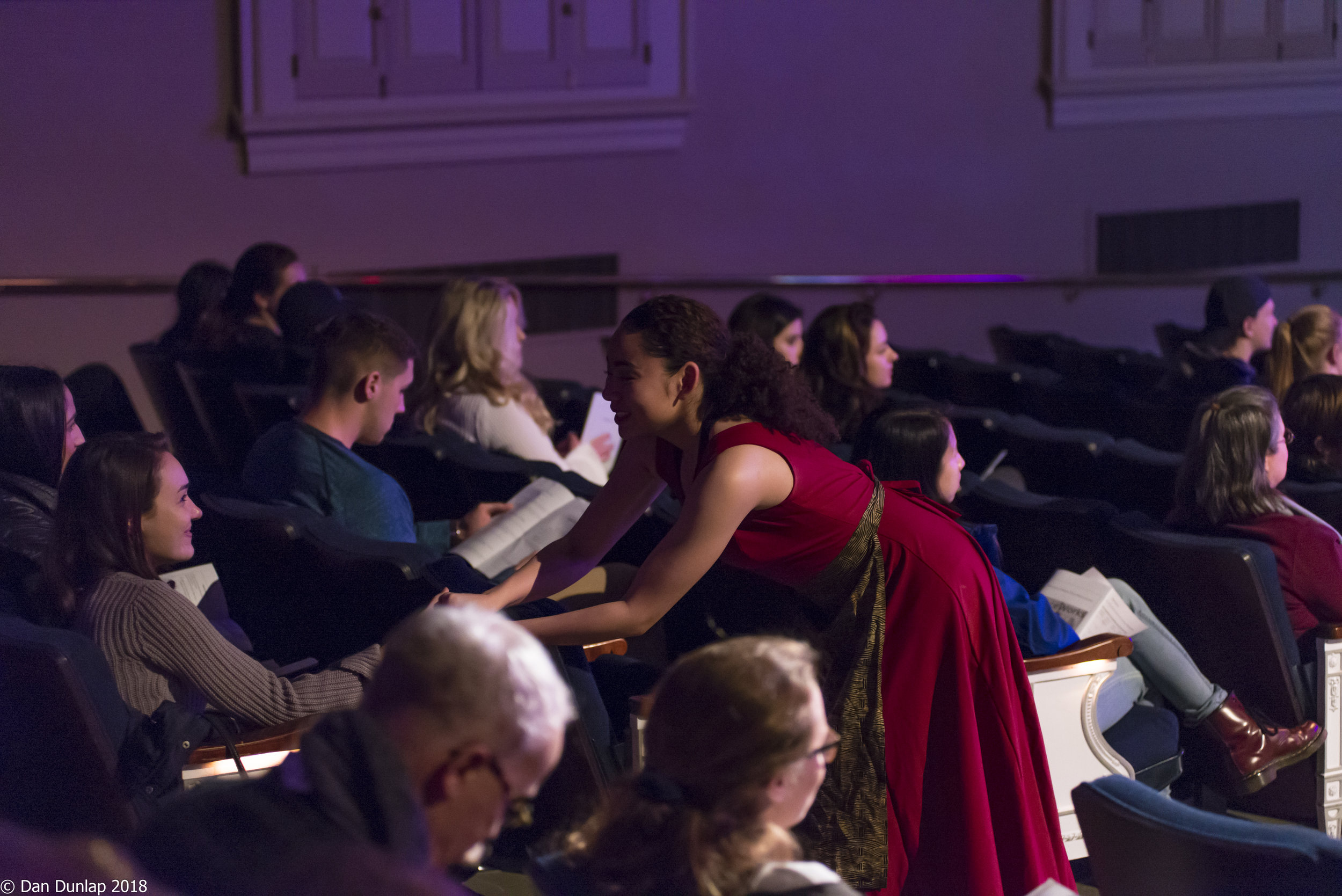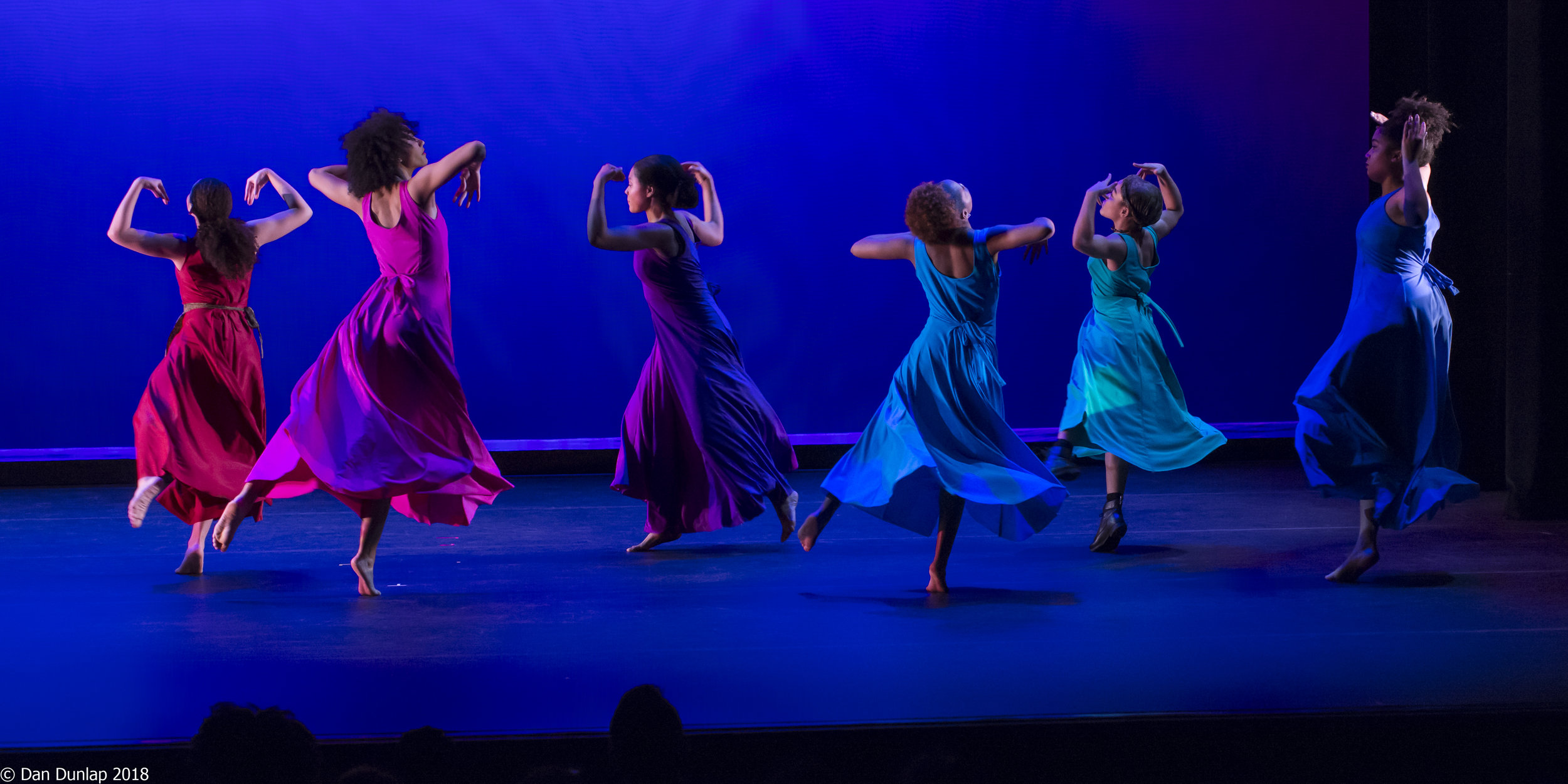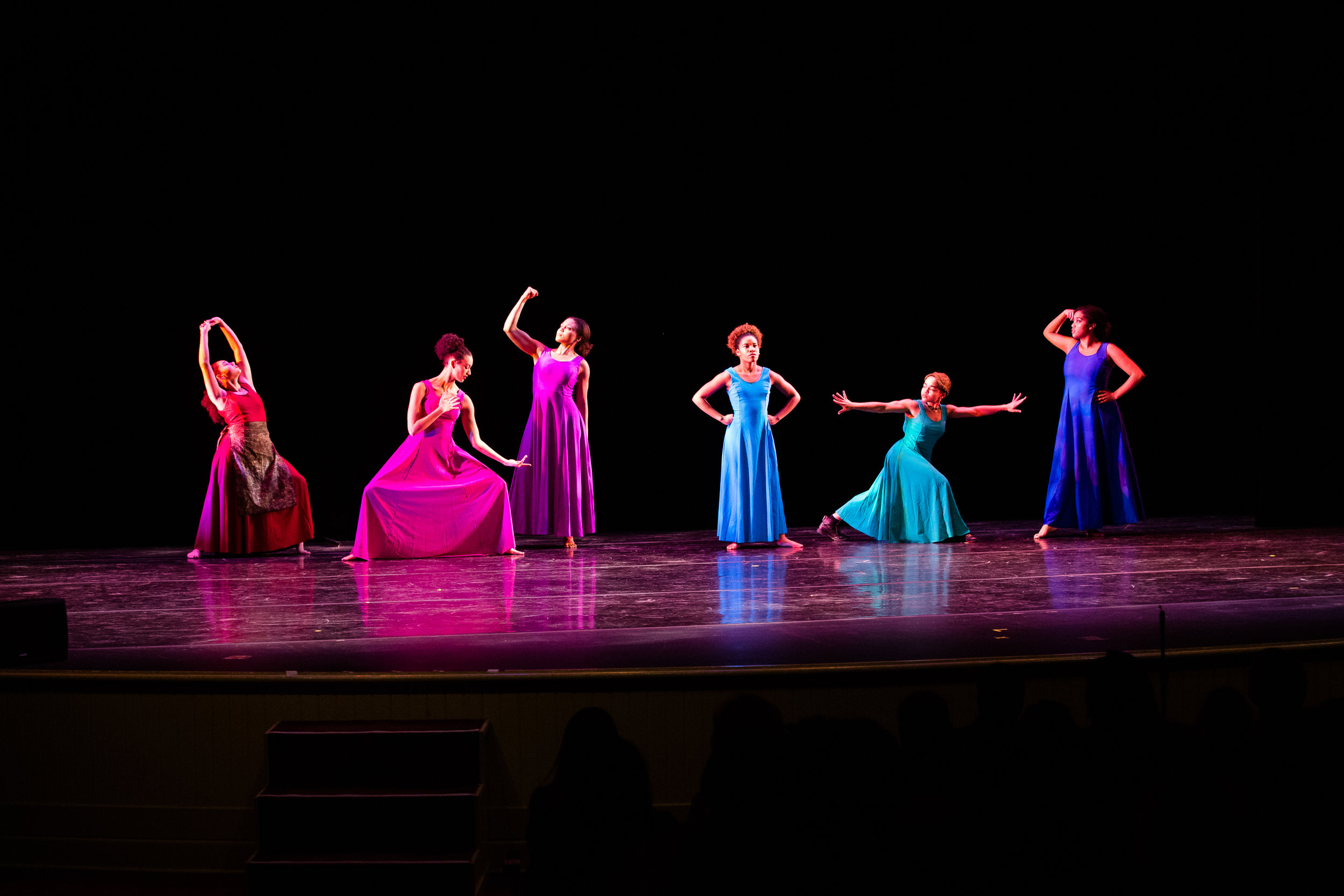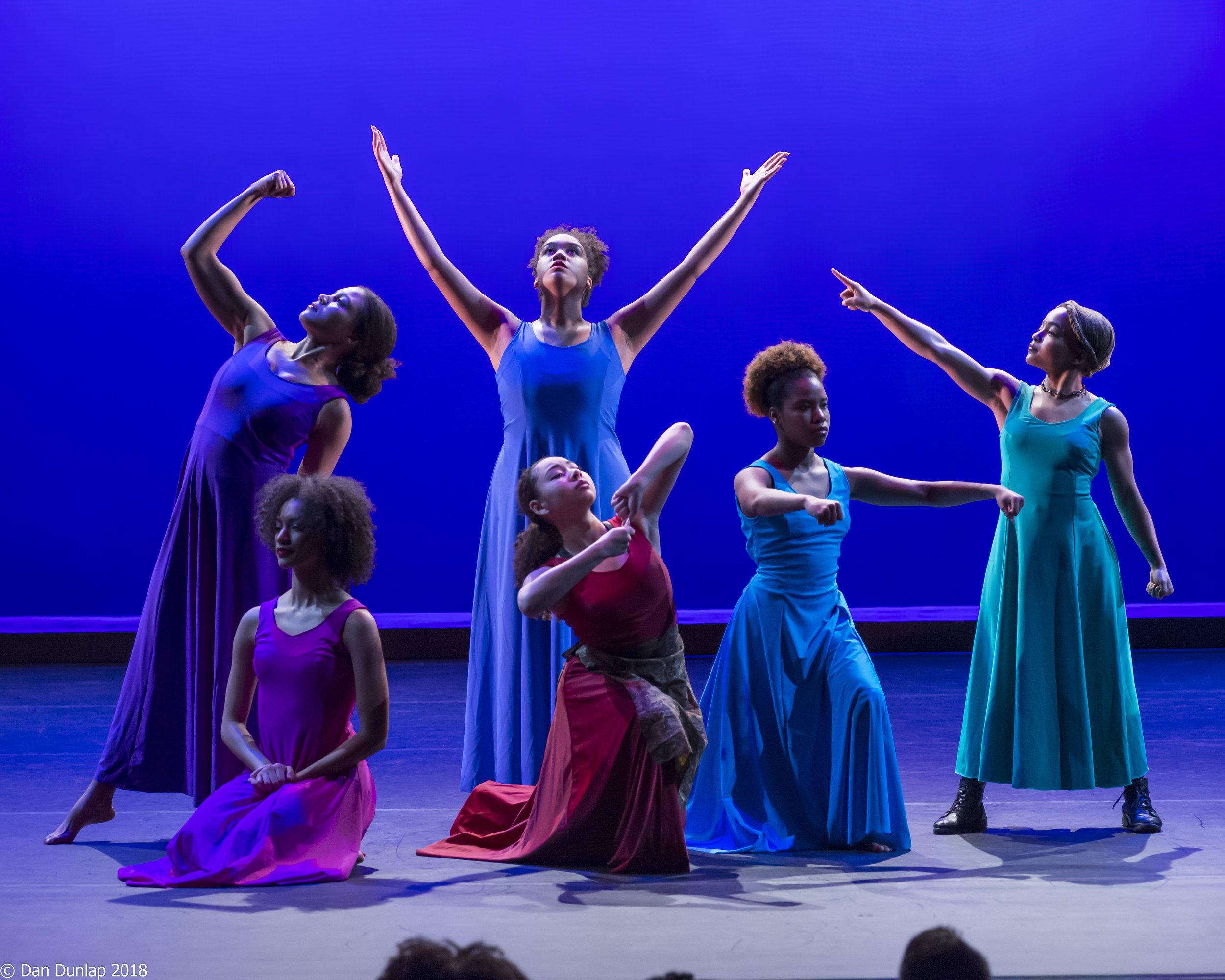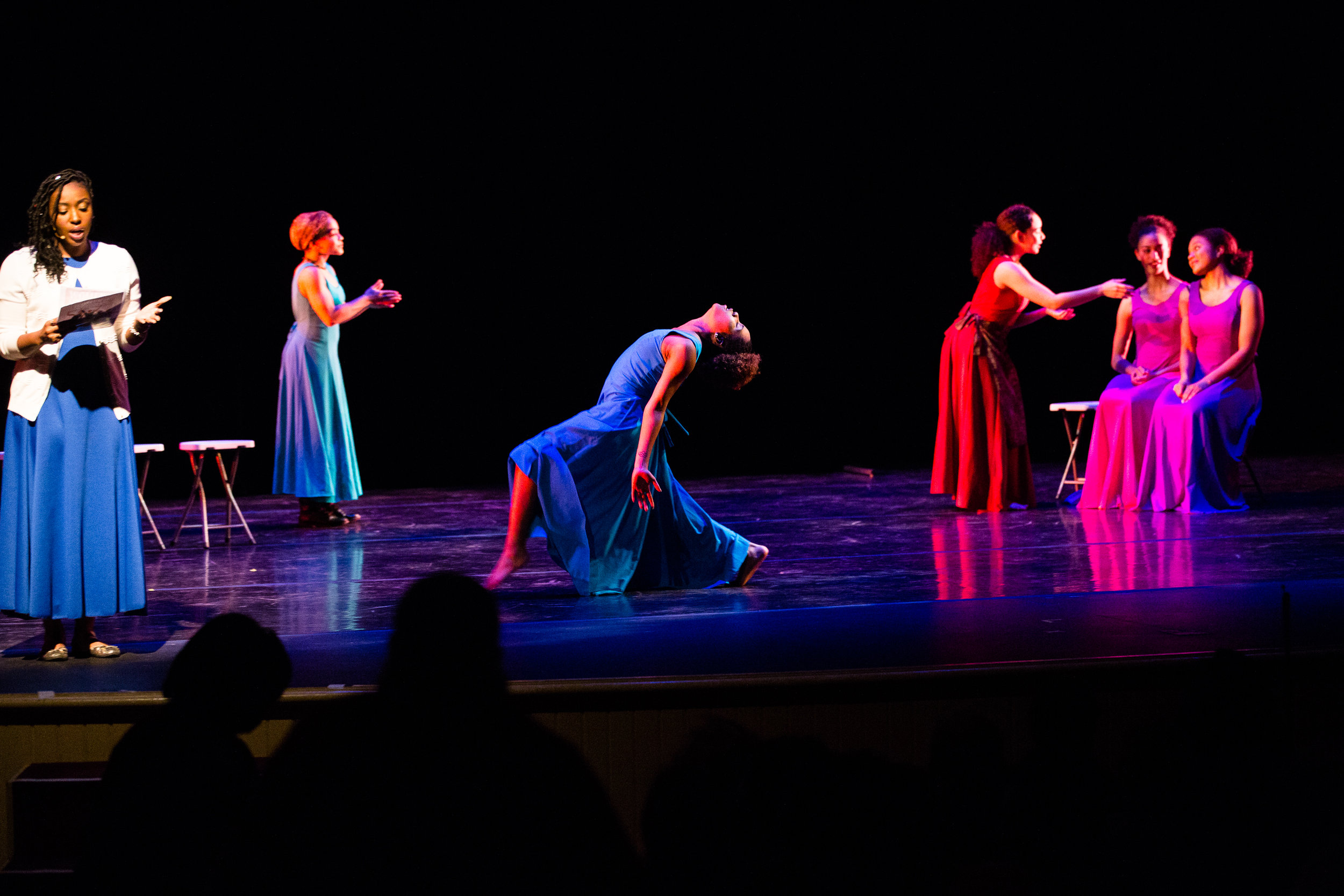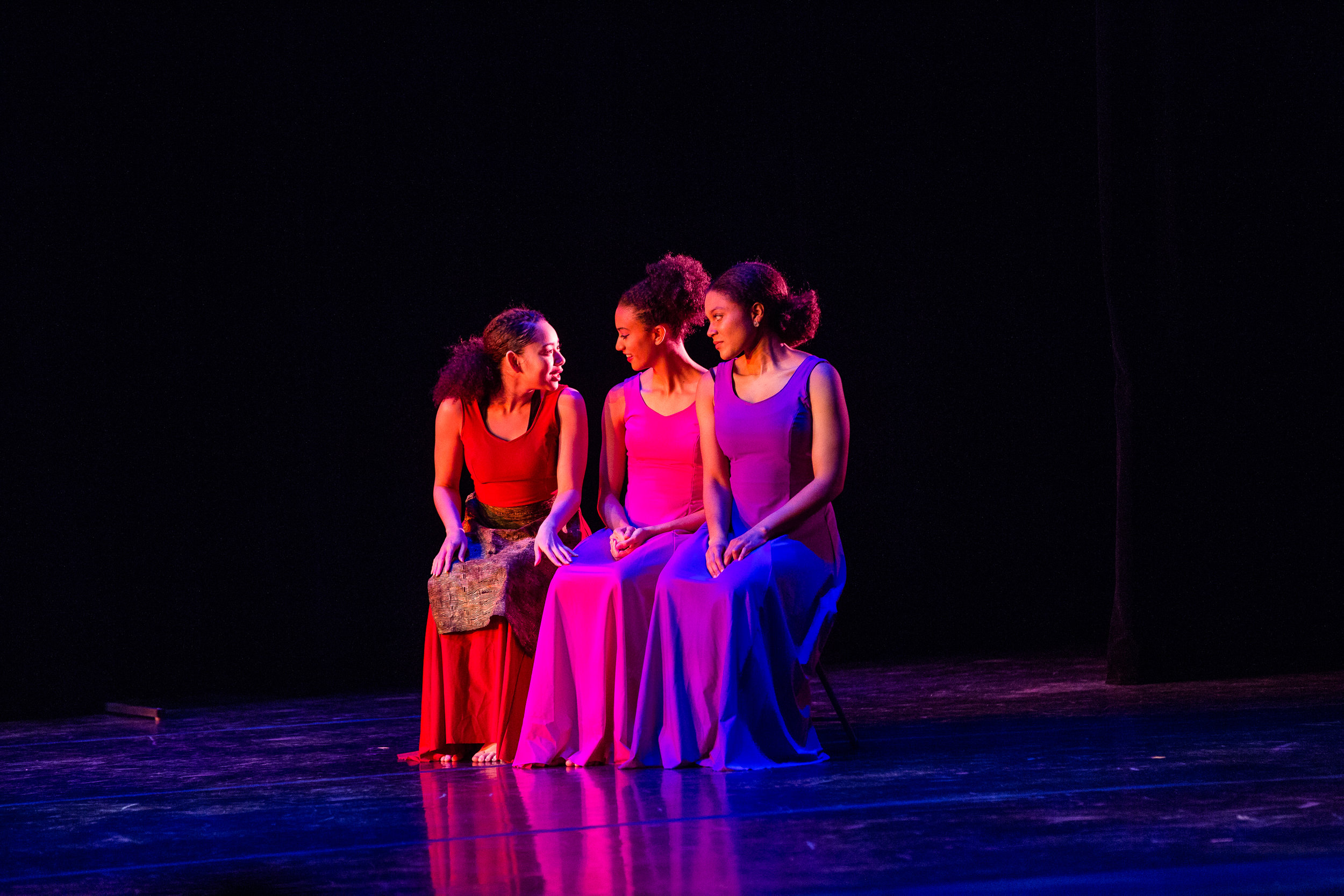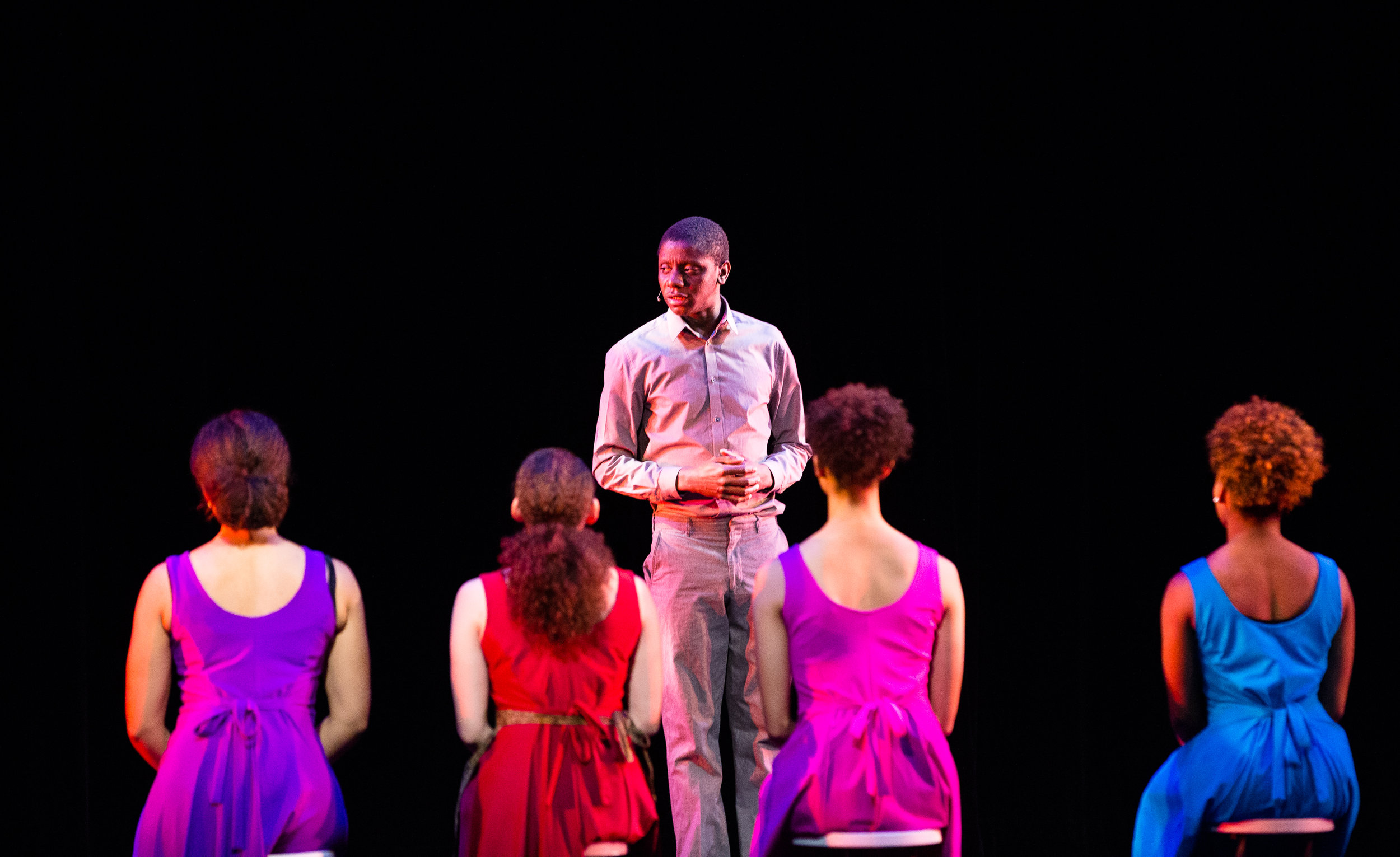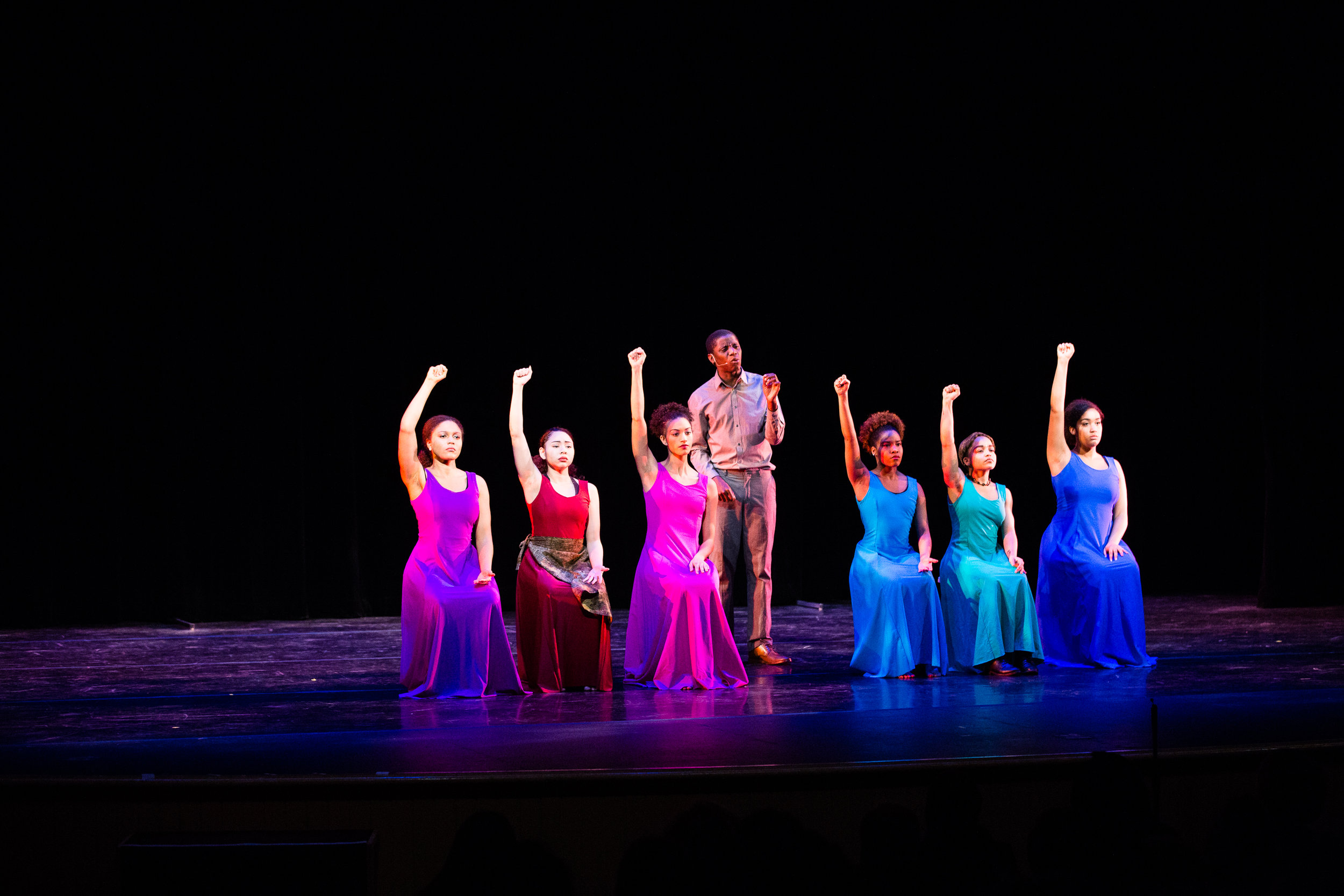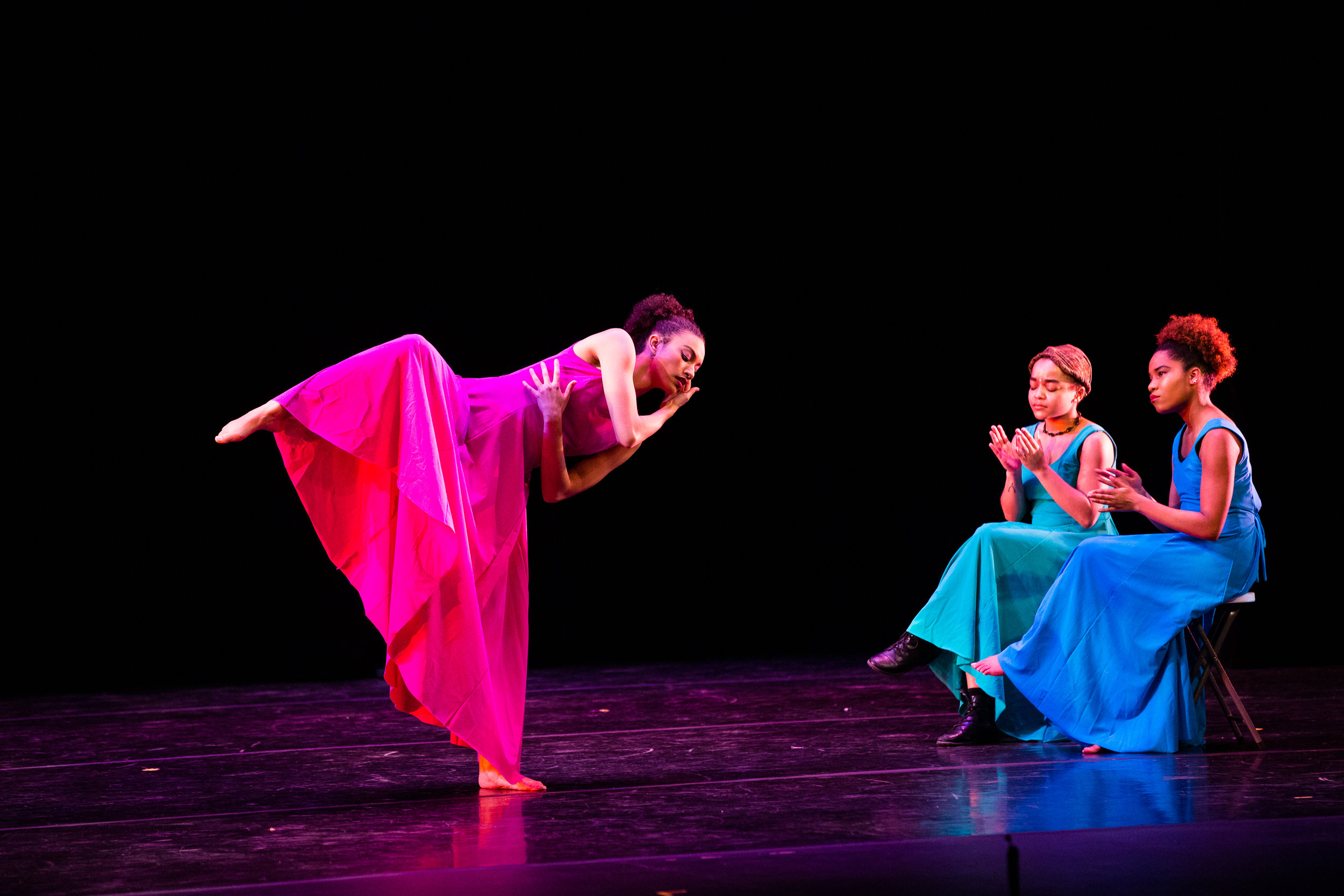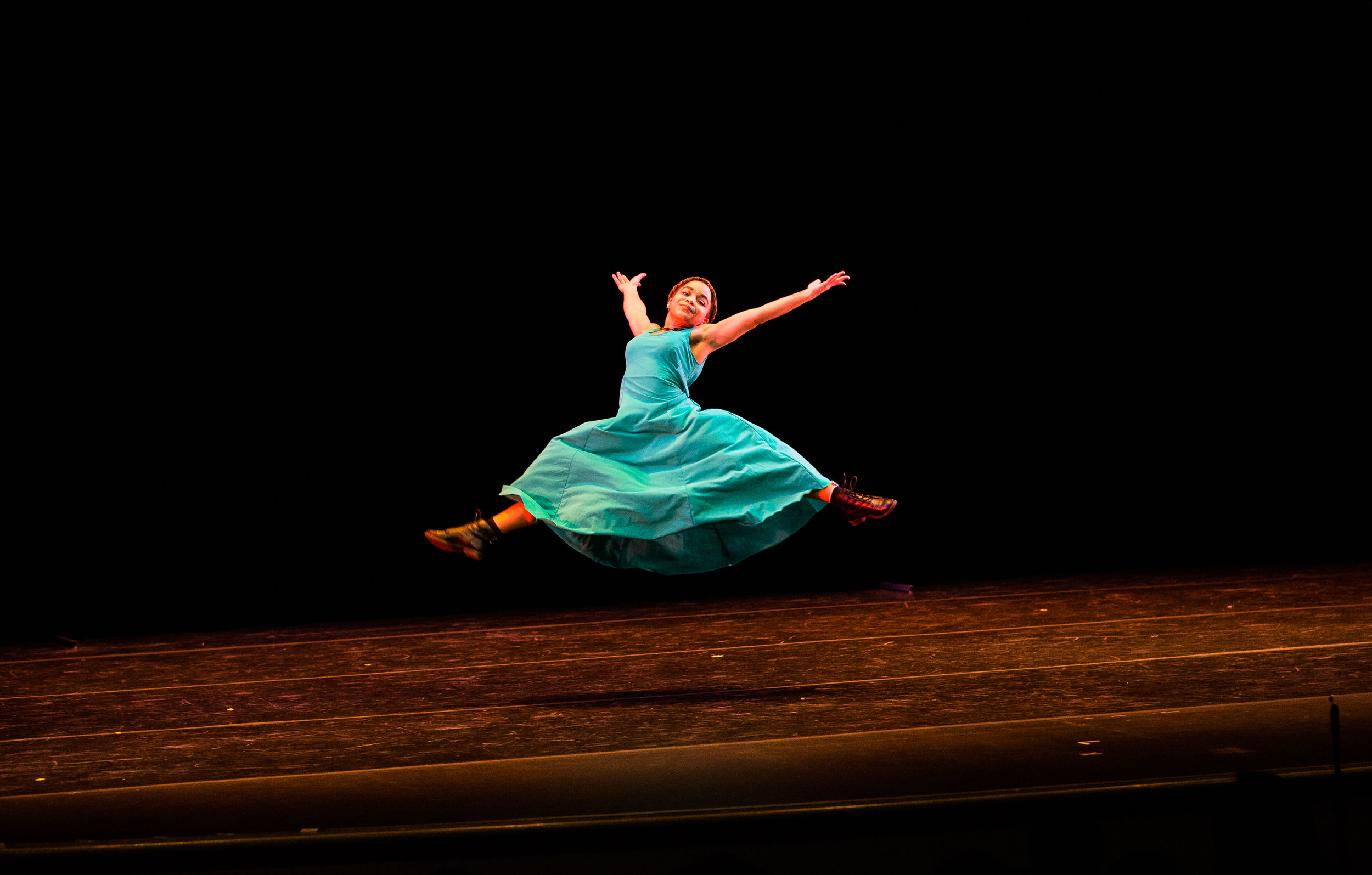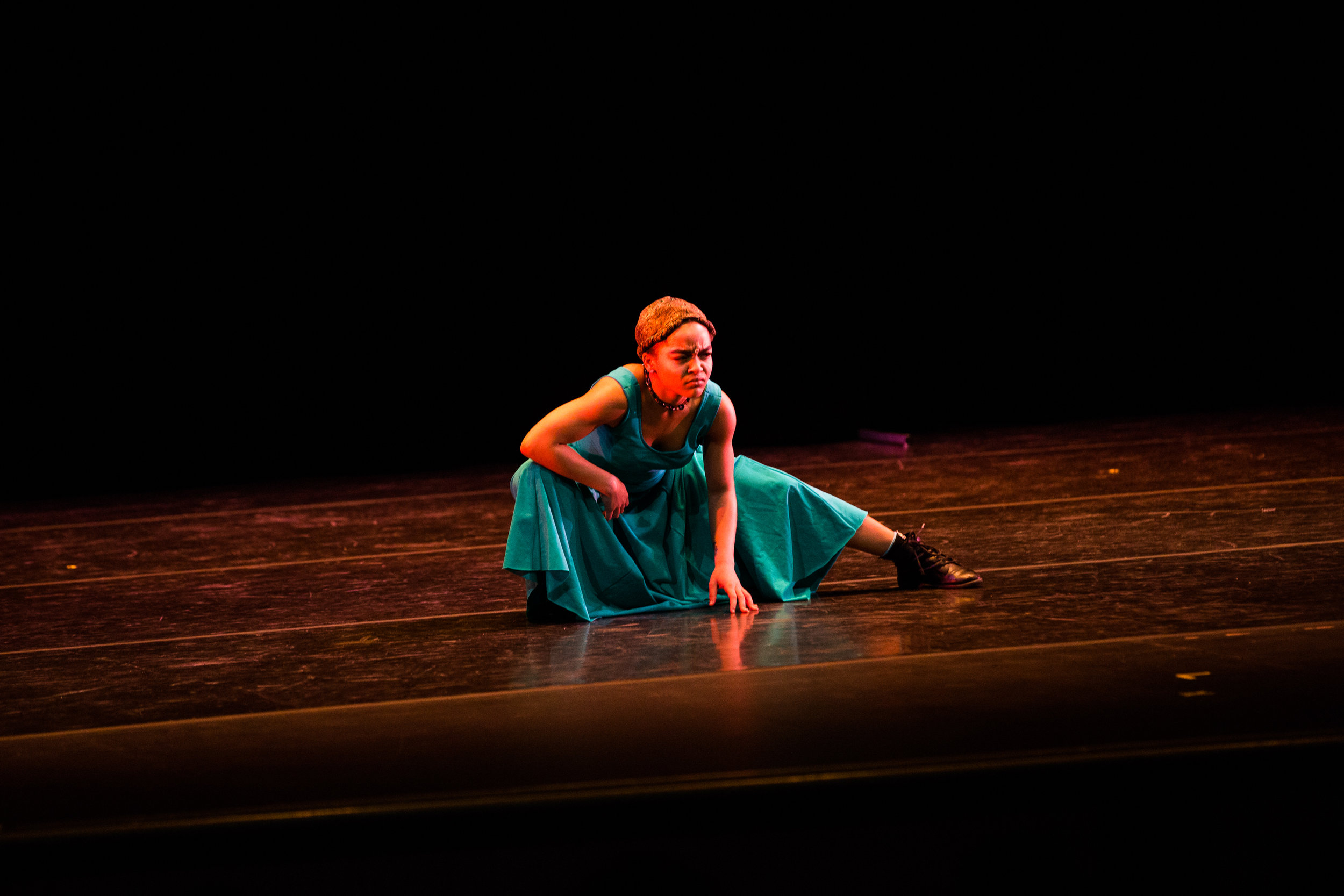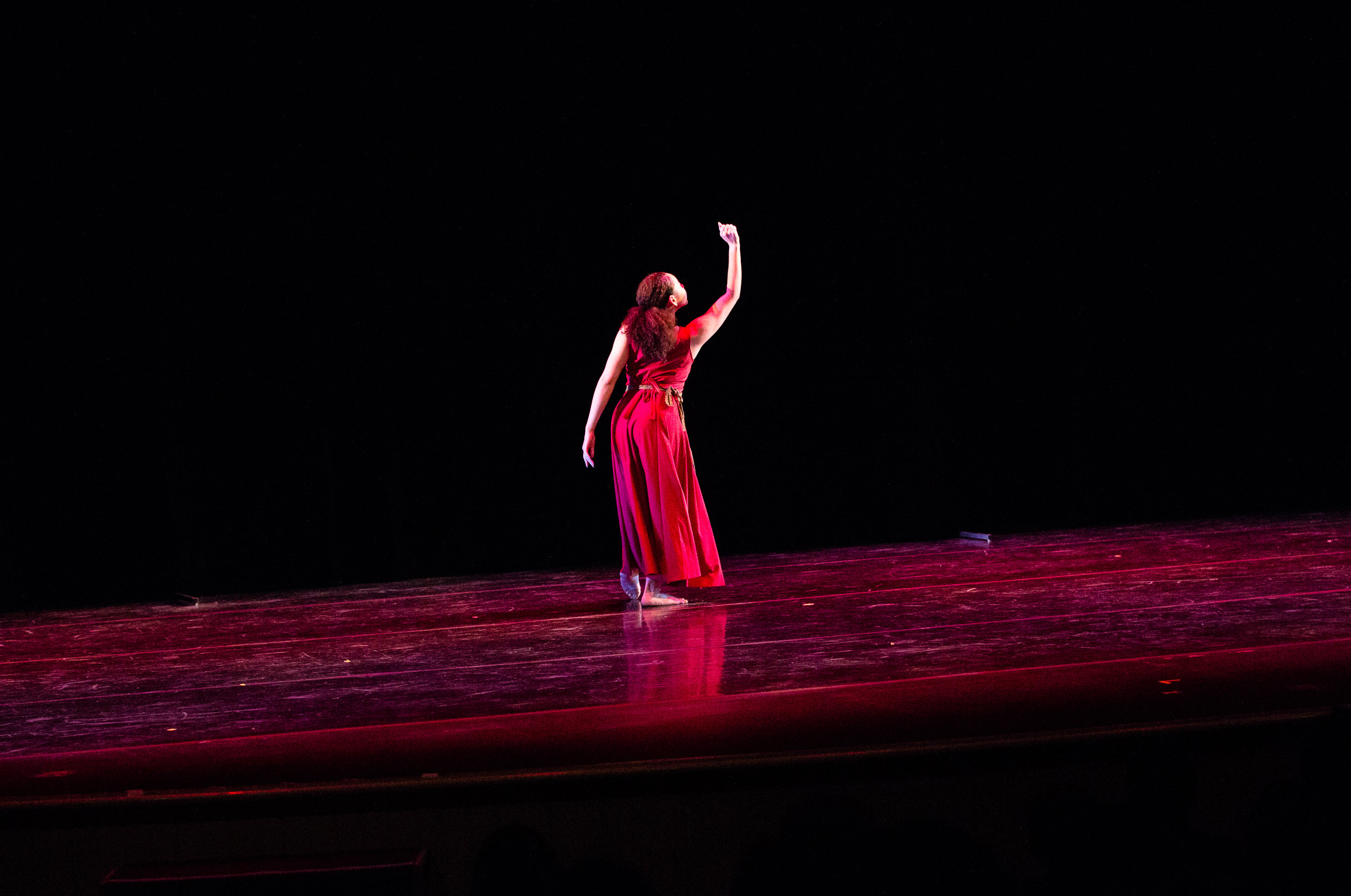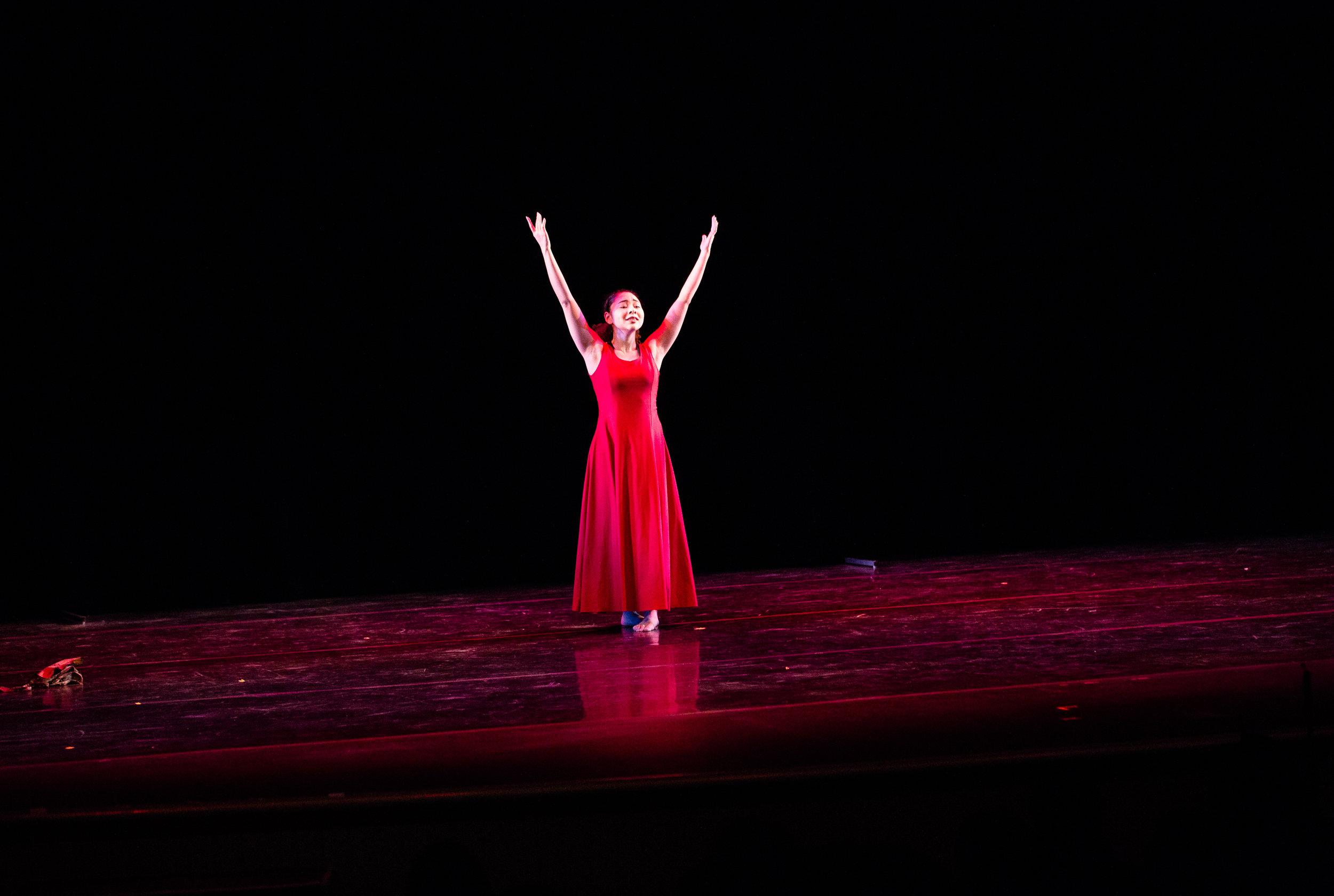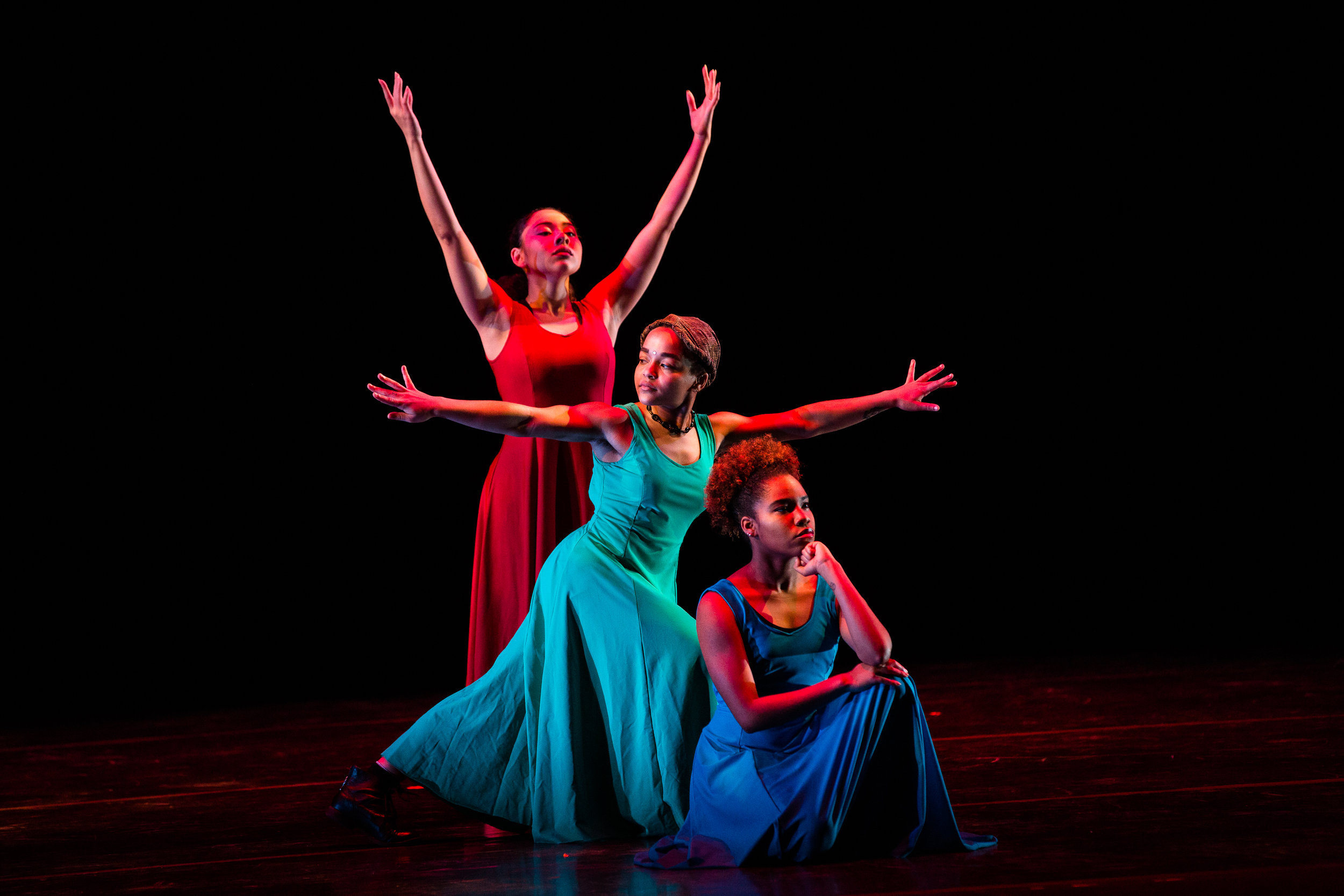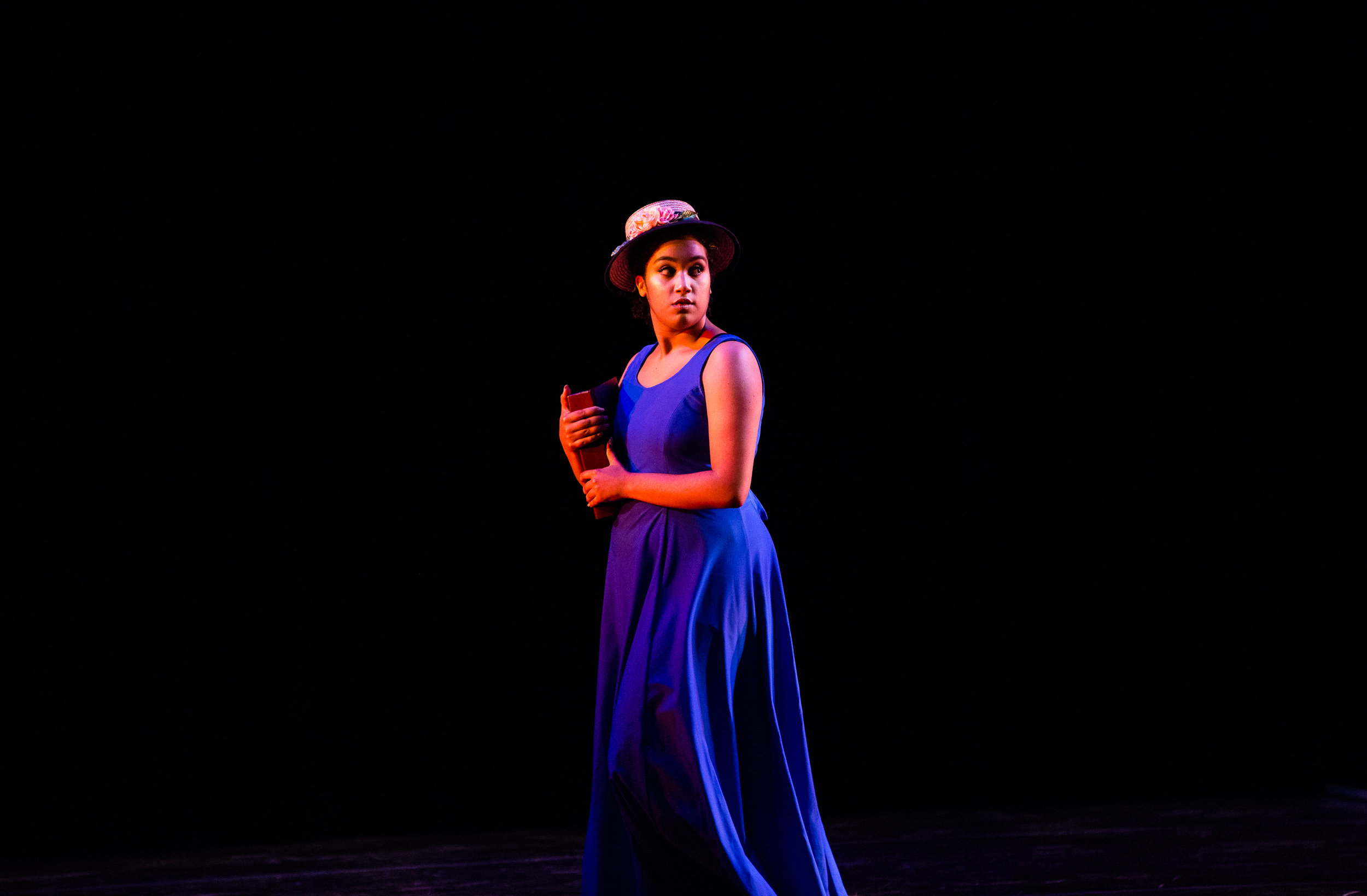Women of Consequence
Ambitious, Ancillary, and Anonymous
Throughout history, ambitious women have often been denied their opportunity to serve as leaders and political advocates on their own behalf. This was true for all women, including women of African descent. Women of Consequence explores the lives of African American women from the 1800’s to the present – women who have contributed to the political landscape of America, but have often been viewed as ancillary, and at worst anonymous. Through the lens of arts-based research, this performance program incorporating poetry, dance and the visual arts will share their stories, and promote audience discussion about freedom of expression and equality for all women.
A study into the connection between Media Communication and Dance. Dance Minor Capstone Project 2017 by Alexandra Guenard

Act 1 - Women of the 1800s

In the 19th century, African American women were leaders, organizers, writers, educators and entrepreneurs in their own right, and this performance project illuminates their stories. Today, you will meet women such as Frances Harper, Harriet Tubman, Harriet Jacobs, Harriet E. Wilson, Charlotte Forten and Mary Shadd Cary, and explore their legacies.
Act 2 - 21st Century Legacies

Visible Force is an embodied ode to the invisible labor of women and the moment it becomes visible--the seamless way in which the woman honors the ordinary as extraordinary--the seeming to be in the crowd and the moment when from the crowd emerges a leader--the promise of the woman is to know purpose and fill the body vibrantly with the work that must be done and the legacies they imprint on landscapes of injustice. The work of the women leaders of Black Lives Matter, the Black Lives Matter “What We Believe” statements (which can be found on their website), and the Ted X talk by environmental activist Majora Carter were inspirations behind the solos and opening portion of the piece.

“Four Roses” is inspired by the stories and history of the women who joined Umkhonto We Sizwe (MK), the ANC’s military wing, during the anti-apartheid movement. Many of these women, at ages as young as 18, left home in secret traveling into exile to join the MK forces stationed in neighboring countries. In the military camps, they would receive training alongside the men, learning how to shoot and conceal guns like AK47’s, and participating in military exercises such a mock raids. After training, each were assigned their various missions to aid in the guerrilla movement.

In the words of Angela Davis” If you ask who does the fundamental work of building movements, you will discover almost always that it’s women.” Black women are the political organizers, leaders and activists, behind revolutionary struggles, epistemology for human rights. Black feminists such as Angela Davis creating the framework and consciousness to help recognize a range of connections among discourses and institutions, and identities, and ideologies that we often tend to consider separate. Nikki Giovanni, an arts activist and pioneer of the Black Arts Movement protesting through her poetry, the eloquence, yet reality of a Black experience in society. Yet engage us to not forget the lives of those unsung. Hashtag #sayhername is a movement and testament to reminds us that Black women and gender-nonconforming women of color, and women of color with disabilities experience a complex policing, more harassment and violence, and fall victim to heteronormative standards and are disproportionately targets of abuse, violence, and exploitation of criminal justice systems.

The words of Deborah Olatunji of Wilmington Charter move us from the 20th to the 21st Century in considering the strength of our past and the promise of the future.

Students in Delaware Middle and High Schools designed Legacy Dances based on the personal characteristics of an important woman in their lives.

A short discussion period designed to allow us to unpack some of the stories shared today.


